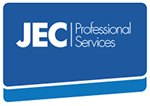This blog was originally published by Global Knowledge where it has received 638 views to date.
The awareness of project management theory is now widespread. Many books have been published and over one million people have taken the PRINCE2 qualification since it was established in 1996. So the theory of project management is now widely known but how successful is it in practice? Various studies have shown that more than a third of projects fail to meet their budgets, deadlines or deliverables.
There are, of course, many reasons for these failures. However a practical, ‘real world’ approach to project governance is key success factor for all projects. An effective Project Board is a vital ingredient in successful project governance. The three key members of a Project Board are the Sponsor (also called the Customer or Executive), the Senior User(s) and the Senior Supplier(s). While their roles are clearly defined in PRINCE2, aside from personalities, it is the practical ways these key members discharge their roles that can impact the effectiveness of the Board.
Project Sponsor
One of the most serious problems for projects is not having the right person as the Project Sponsor. The Sponsor needs the appropriate authority but also needs to have sufficient time to fulfill their role. If they have other management responsibilities, or act as Sponsor for too many projects then they may have insufficient time to devote to the role. While the Project Board authorizes the major project decisions, an important role of the Project Sponsor is to maintain progress of the project by making executive decisions between Project Board meetings. To fulfill this role the Project Sponsor must ensure they are accessible to the Project Manager and have sufficient time to do this, if not they may themselves become a resource constraint.

Alternatively the Sponsor may operate at a too low level and delve in at the micro level of the project, rather than providing direction and support at the macro level. Too close an involvement in the project may undermine the project manager’s role and accountability.
Senior Supplier
In general the Senior Supplier role is likely to be less problematic. Commercial companies are motivated to deliver on time so they can invoice for their expenditure. Problems can arise if they have not devoted sufficient resources to their tasks or they extend themselves beyond their staff’s competences. A key skill the Senior Supplier needs is to be able to clearly explain the consequences of technical issues so that the confidence of the Project Board is maintained. The Board’s confidence can plummet where there is more than one Senior Supplier and they dispute the responsibility for issues. These responsibilities are better resolved outside of the board meetings.

Senior User
The Senior User role is often a make or break role in the project governance. Staff from user departments provide a critical resource for the project e.g. contributing to the analysis of requirements and user acceptance testing. But the staff will also have ‘day jobs’. Therefore it is critical that the Senior User ensures their time is freed up for the project otherwise the project will stall. As the Sponsor holds the budget the Senior User may be unaware of the cost impact of delays unless these are made clear to them.
It is logical to invite a senior manager of the department to take on this role so that they can speak on behalf of the department. However senior managers have many demands on their time. While they may be supportive of the project they may not have be afford it sufficient priority over day to day demands and they may choose not to attend Project Board meetings. The Senior User may request that the project reports into regular departmental management team meetings. However it is likely that the project becomes an agenda item of the management meeting and may not be afforded the time or priority required because of pressure of other business. The Project Board needs the time and opportunity to discharge its responsibilities and a Senior User who is committed to the project, and is able to influence their senior managers, may be a better candidate.

